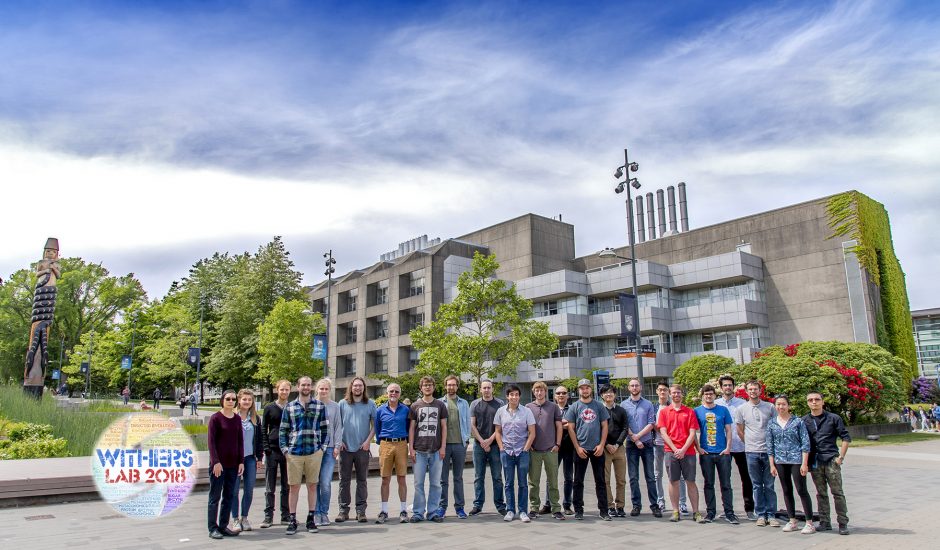Maybe you read this title and thought, “What kind of question is this, obviously it’s more convenient NOT to pay employees and get free labour in the lab you are running!” Undeniably, many employers may believe in this line of thinking as well.
However, recently we’ve had the opportunity to speak with Dr. Stephen Withers from the esteemed Withers Research Group. Initially, we met to discuss his latest research about using newer and more efficient imaging probes that light up upon contact with influenza molecules. But additionally, we happened to gain an understanding about his personal beliefs when it comes to paid versus unpaid research assistants.
Podcast: Delving into Dr. Stephen Withers’ life, and his road into the scientific world.

Video: Illuminating Influenza: a look into a new type of imaging reagent.

Description: The Withers Research Group from the Chemistry Department
Dr. Withers claimed, “Many labs take volunteers, but I prefer to pay my researchers, to make sure that they’re committed. There can be volunteers that don’t feel quite as committed even after you spend lots of time training them.”
Upon hearing this, we were curious. Did the benefits of paying their researchers outweigh the costs required to pay them?
A qualified volunteer in a research lab offers their time and skills in exchange for experience in a field they are looking to delve into. Although many volunteers choose to work in labs because they’re passionate about the field that is being researched, this is unfortunately not always the case. Frequently, undergraduate students who volunteer in labs do so simply because they believe that it will help boost their resumes for co-ops, or various post-undergraduate institutes. To explore this idea, we interviewed a 2nd year undergraduate student at UBC who asked to remain anonymous about the reasons why he volunteered within a research lab.
 Description: A Research Lab Environment
Description: A Research Lab Environment
Source: Google images: Ryerson University
“…I’m not particularly interested in what I’m researching,” He claimed, “it’s not as if I do particularly specialized tasks anyway. I’m just volunteering because it should boost my application for med[ical] school.”
Indeed, there exist students who choose to volunteer without being interested in the research. This, combined with the fact that volunteer positions are unpaid by nature, it is apparent why some undergraduate volunteers may have some issues staying committed to the research after time passes as Dr. Withers hypothesized.

Description: Quote by Barbara Sanfilippo
Source: Barbara Sanfilippo’s article
There is indeed a difference to having paid vs. unpaid research assistants, but overall, it is important for research groups to maintain an open mind and decide which style of accepting undergraduate students to work in their labs is right for their specific environment.
However, the simplest solution to this question is for students to only apply if they’re ready to commit and be passionate about the research they’re aiding.
This way, there’s not even a question to answer.
- Jin Kyu Lee, Marianita Paspuel, Mirkka Puente, Alyssa Gutierrez
